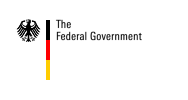The first German summit: Cooperation and compromise
The first summit under German aegis was held in Bonn on 16-17 July 1978. Promoting economic growth in the member states was one of the key issues at the time.
The breakthrough in multi-lateral trade and tariff negotiations (GATT) and the prevention of plane hijackings were also at the centre of discussions.
Other summits in Germany: Bonn 1985, Munich 1992
The second Bonn Summit of 2 - 4 May 1985 dealt with the issues of reviving international trade and combating protectionism. It prepared the way for the Plaza Agreement which succeeded in achieving the devaluation of the dollar.
Foreign policy issues were at the top of the agenda at the Munich summit of 6 - 8 July 1992, set against the background of the end of communism. In addition to the conflict in the former Yugoslavia, relationships with the East European states and developing countries were at the centre of discussions.
Other issues included nuclear non-proliferation and combating unemployment.
Cologne Summit 1999 – Shaping globalisation
Under Germany Presidency the G8 Foreign Ministers were predominately concerned with solving the Kosovo crisis. The German G8 Initiative on conflict prevention was further developed under Japan's Presidency in 2000.
The Cologne Summit of 20 June 1999 developed a range of concrete proposals. It focused on the political response to globalisation and areas of joint action.
The Heads of State and Government agreed to act against crises in the international financial markets by close cooperation between national regulatory bodies and international organisations.
The Cologne Education Charter, agreed at the summit, stressed the necessity of innovative educational measures in the face of the growing significance of knowledge in achieving economic success.
>> The Cologne Education Charter
Debt relief is extended for the poorest countries
The Cologne Debt Initiative is a milestone in Germany's Presidency of the G8: This achieved a decisive step forward in debt relief for the world's poorest countries. 1996 saw the introduction of the G7 inspired HIPC Initiative ("heavily indebted poor countries").
This was substantially extended at the G7 summit in Cologne in 1999 at the instigation of the German Federal Government (HIPC II).
This initiative is aimed at reducing debt in the heavily indebted countries to a sustainable level. Countries which benefit from debt relief commit themselves to using the released funds in measures and investments aimed at reducing poverty.
This demonstrates the significant contribution that debt relief makes in achieving the Millennium Development Goals. 29 states qualified for debt relief according to the HIPC initiative by October 2006, 20 of which have reached completion point and had their debts reduced.
The HIPC initiative was extended by the Multilateral Debt Relief Initiative (MDRI) in 2005 following action taken at the Gleneagles G8 Summit. The MDRI is aimed at relieving the indebted states from their remaining debt with the World Bank subsidiary IDA, the IMF and the Africa Development Fund.
>> The HIPC initiative
Germany's contribution to debt relief
Within the framework of the HIPC Initiative, the Federal Government agrees the full remission of bilateral debt for entitled countries. The Federal Government will thereby remit bilateral debt of 7 billion euros.
The Federal Government also makes a contribution to MDRI costs of around four billion euros. Thus Germany makes a significant contribution to supporting the poorest countries.
In return, countries in receipt of debt relief are expected to
- increase their efforts to reduce poverty,
- commit themselves to implementing or extending political reforms
- improve their governance.

